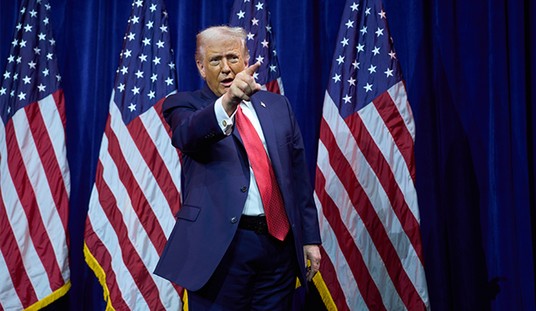President Donald Trump is preparing to issue an executive order that would use federal agencies to prevent states from imposing regulations on artificial intelligence technology.
This comes amid a national debate over whether the technology should be regulated at the state or federal levels.
From Politico:
The White House is preparing to issue an executive order as soon as Friday that enlists the power of the federal government to block states from regulating artificial intelligence, according to four people familiar with the matter and a leaked draft of the order obtained by POLITICO.
The draft document, confirmed as authentic by three people familiar with the matter, would launch several efforts to challenge state AI laws — including an “AI Litigation Task Force” run by the Department of Justice.
The order plays into a contentious national debate over whether Washington or state capitals should set the direction of national AI policy. The industry and its Republican supporters argue that existing and future state laws on AI could lead to a conflicting “patchwork” that slows innovation.
A congressional effort to block state AI laws as part of the GOP’s One Big Beautiful Bill Act collapsed this summer amid Republican infighting.
This week, the prospect of an AI moratorium surfaced again in Congress — possibly incorporated into the year-end annual defense bill. President Donald Trump threw his weight behind the legislative effort in a post on Tuesday.
The executive order would be a different approach, deploying the muscle of several federal agencies to quash state AI regulations.
Government lawyers would be directed to challenge state laws on the grounds that they unconstitutionally regulate interstate commerce, are preempted by existing federal regulations or otherwise at the attorney general’s discretion.
The task force would consult with administration officials, including the special adviser for AI and crypto — a role currently occupied by investor David Sacks — to determine which state AI laws would be worth challenging, according to the document.
Breaking news: The Trump administration is drafting an executive order that would direct the Justice Department to sue states that pass laws regulating artificial intelligence, according to a copy reviewed by The Post. https://t.co/vJZkcZpsVV
— The Washington Post (@washingtonpost) November 20, 2025
The order, titled “Eliminating State Law Obstruction of National AI Policy,” instructs federal agencies to circumvent state laws to establish a “minimally burdensome national standard,” according to Axios.
The White House will also use the threat of pulling federal funding for states that do not comply. The Commerce Secretary would issue a public notice outlining the conditions that states would have to meet to be eligible for Broadband Equity Access and Deployment funding.
Recommended
During a Wednesday event, President Trump argued that it would be a “disaster” to have all 50 states regulating artificial intelligence “because then you would have one ‘woke’ state.”
Others like Sen. Ted Cruz (R-TX), who chairs the Commerce Committee, cautioned that empowering blue states to regulate AI would result in “woke” AI models.
This isn’t an unrealistic outcome. States like New York have sought to impose these types of regulations on social media platforms to force them to moderate content they deem inappropriate.
New York recently passed the “Stop Hiding Hate Act,” which took effect this year. It requires social media platforms with over $100 million in yearly revenue to publicly post their terms of service related to hate speech, racism, misinformation, harassment, extremism, and foreign interference.
Even further, these companies must outline mechanisms for users to report violations of the terms of service and submit biannual reports to the state Attorney General’s Office detailing the number of policy violations flagged by users, the number of posts that resulted in action (removal, demonetization, etc), and descriptions of enforcement actions taken in response to violations.
In essence, New York’s government will be keeping an eye on how social media platforms are handling speech with which Democrats disagree. Companies can face up to $15,000 per violation per day if they do not comply.
This is precisely the type of legislation blue states will pass to ensure that only their ideas can be expressed through artificial intelligence. In fact, they will do even worse, as they have repeatedly shown with how they sought to restrict certain types of speech online.

























